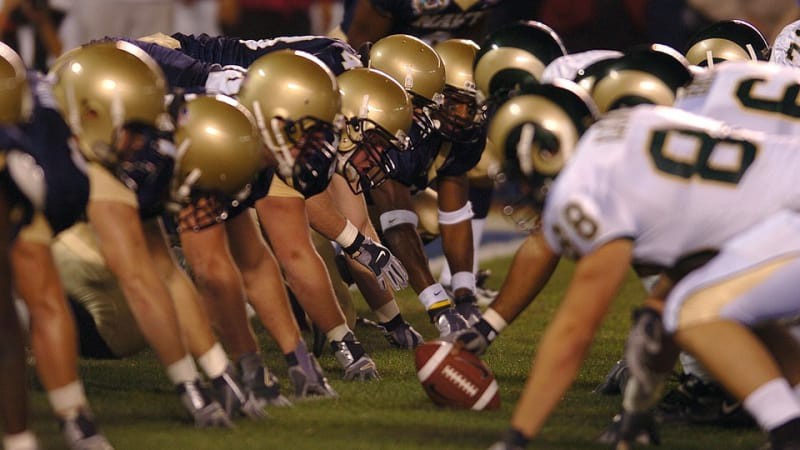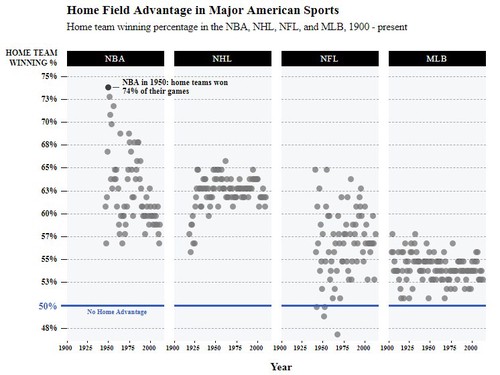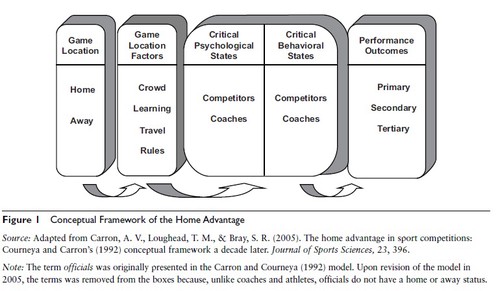
Home match is considered to give an advantage for teams, and away match is considered harder for teams. That's why in Football we value away goals higher than home goal.
But, do home teams really have an advantage in sports?
Statistics shows that teams have higher percentage of winning when they play at home. In their book Scorecasting as quoted by Freakonomics, University of Chicago behavioral economist Tobias Moskowitz and veteran Sports Illustrated writer L. Jon Wertheim compile the percentage of home games won by teams in all the major sports.
League Home Games Won
- MLB 53.9%
- NHL 55.7%
- NFL 57.3%
- NBA 60.5%
- MLS 69.1%
This chart below from pudding.cool shows same conclusion.

It's hard to argue against data. It's clear that home advantage exists. But, why does that advantage exist?
Causes of Home Advantage
There are several factors why playing at home is considered to give advantage to teams; crowd support, familiarity with the stadium/venue, no need to travel to get to the stadium/venue, etc. Most of us believe that those factors give advantage to home teams.
Below is a framework by Albert Carron, Todd M. Loughead, and Steven R. Bray as quoted by iresearchnet.com.
They proposed that the location of the competition (home vs. away) differentially influences four main factors—the degree of crowd support (and through crowd support, possible favorable officiating decisions), the need to travel, learned familiarity with the venue, and some rule advantages (e.g., batting last in baseball).

But Moskowitz and Wertheim disagree. They found an interesting fact about this as written in their book.
When athletes are at home, they don’t seem to hit or pitch better in baseball … or pass better in football. The crowd doesn’t appear to be helping the home team or harming the visitors. We checked “the vicissitudes of travel” off the list. And although scheduling bias against the road team explains some of the home-field advantage, particularly in college sports, it’s irrelevant in many sports.
So, if those factors don't explain home advantage, what does?
The answer is: the refs. They found that the home teams get preferential treatment from the match officials. But this officials bias is involuntary. Officials don’t consciously decide to give the home team an advantage — but rather they assimilate the emotion of the home crowd and sometimes make a call that makes noisy people happy.

A paper by Thomas J. Dohmen also found that in Germany's Bundesliga home advantage was smaller in stadiums that happened to have a running track surrounding the pitch. The closer crowds sit to the stadium, the more likely refs to caught up with crowds emotion.
The social atmosphere in the stadium leads referees into favoritism although being impartial is optimal for them to maximize their re-appointment probability.
So, yeah apparently crowd does matter. But in a way you might have not thought of before.
Interesting, isn't it?
Comments